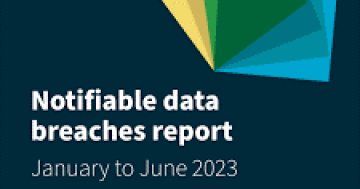 Proposed new draft laws to increase penalties for breaching privacies in the Australian community have been welcomed by the Office of the Australian Information Commissioner (OAIC).
Proposed new draft laws to increase penalties for breaching privacies in the Australian community have been welcomed by the Office of the Australian Information Commissioner (OAIC).
Australian Information Commissioner and Privacy Commissioner, Angelene Falk said the new laws would help address serious privacy risks with an exposure draft detailing proposed penalties as well as the scope of a new Online Privacy Code.
“These updates to penalties are needed to bring Australian privacy law into closer alignment with competition and consumer remedies,” Ms Falk said.
“We also welcome new information-sharing powers in the draft Privacy Legislation Amendment (Enhancing Online Privacy and Other Measures) Bill 2021, which will facilitate engagement with domestic regulators and our international counterparts to help us perform our regulatory role efficiently and effectively,” she said.
Ms Falk said the legislation was an important step towards the OAIC having more of the regulatory tools it needs to take a risk-based approach to preventing harm.
She said that under the draft legislation, the maximum penalty of $2.1 million for serious or repeated breaches of privacy would increase to not more than the greater of $10 million, or three times the value of any benefit obtained through the misuse of information, or 10 per cent of the entity’s annual Australian turnover.
She said the exposure draft included new code-making powers to enable the development of an online privacy code to regulate social media services, data brokerage services and large online platforms.
The Commissioner said the code would be developed by industry and would include requirements for the companies to be more transparent about how they handled personal information and sought specific consent from users.
She said it would also include more stringent privacy requirements for children.
Ms Falk said the release of the exposure draft was an important opportunity for interested parties to provide feedback during the consultation period.
“The issues of age verification and parental or guardian consent can be informed by overseas experience and the eSafety Commissioner’s current work in this area,” she said.
“As a contribution to this discussion, the OAIC is releasing independent research we commissioned about the privacy risks and harms facing children online,” Ms Falk said.
The 46-page exposure draft can be accessed at this PS News link and details on how to have a say before 6 December at this link.











